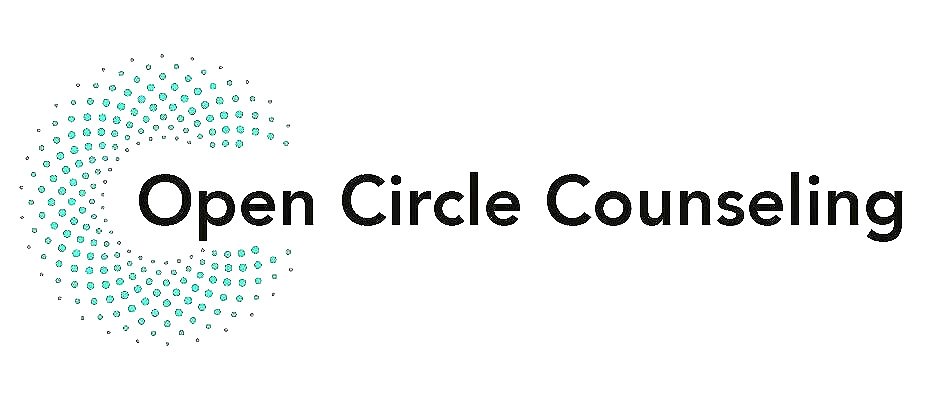Frequently Asked Questions
Do you take insurance?
I have a hybrid private practice—I take some insurance and am private pay/out of pocket. My private pay fee is $175 per 50-minute session and all Ketamine and psychedelic preparation and integration is $200 per 60 minutes.
At times, the insurance side of my caseload is full, and I cannot accept new insurance-based clients. If so, I can place you on my waitlist or suggest other therapists.
If you decide to pay out of pocket, you can check with your insurance regarding your ‘out of network benefits’; your insurance may provide some reimbursement or allot the money you pay to go towards your deductible. To help, I can provide a monthly superbill that you may submit to your insurance for reimbursement-included in that is a diagnostic code.
Why do people pay out of pocket for therapy? Why do you have a hybrid practice?
Here are some main reasons—When you use your insurance benefits to meet with a therapist, that therapist must use a diagnostic code when submitting a claim (ex., major depression, generalized anxiety, PTSD). Many clients do not want mental health diagnoses in their medical records for various reasons. Also, sometimes, client’s issues do not fit into any diagnostic criteria, yet they still need and want support. Then, I cannot prove to the insurance panel that treatment is necessary. Some clients don’t want to deal with the hassle of mental health claims being denied, insurance deciding how long a client can be in therapy, etc. Many clients want the freedom to choose what is right for them.
Insurance companies often do not reimburse therapists a wage that can support a therapist’s cost of living. I charge a ‘full fee’ to support my financial obligations.
Can you help me use my out-of-network benefits?
Yes, I most certainly can. Many insurance plans offer some reimbursement for the cost of therapy provided by a licensed therapist who is not in-network with your plan. Check with your plan’s out-of-network benefits for reimbursement eligibility, reimbursement percentages, and deductibles.
How does this work?
I collect the payment at the beginning or end of our session and provide a ‘superbill’ (documentation containing the information your insurance company needs to have on file in order for you to use your benefits—if you have them).
Ask me for more details about what is listed in a superbill.
How do I discover what my insurance will cover?
To find out what your insurance may cover, contact your insurance and ask if you have out-of-network mental health coverage.
You may also want to mention the type of license that I have to ensure services with my type of credential are covered. I am a Licensed Marriage and Family Therapist (LMFT). The common CPT code used is 90837—you can ask your insurance what is covered under that code for ‘out of network’ services.
Other things you may want to ask about are:
What your deductible is
What your co-insurance payment will be
How many visits you get per year
If you need authorization for your visits
Details on how to submit a superbill
Contact me if you would like more guidance on determining what your insurance will cover.
What is your cancellation policy?
A minimum of 24 hours before your session is required to cancel a scheduled session. If prior and timely notification is not given, you will be charged the full session fee for the missed session.
I’m nervous about starting therapy. Is that normal?
Therapy can be vulnerable and new, so it’s natural to be nervous. It can feel intimidating to sit with someone and talk about how you feel and overwhelming to think about re-hashing your life story (you don’t have to re-hash your life story; we can take it at a manageable pace). Taking steps to seek help for your challenges is a huge step. It takes courage and vulnerability.
Therapy is a space where you can be yourself and come just as you are, including feeling confused or overwhelmed. I’m committed to finding a way to care for your nervousness and ensure sessions are as comfortable as possible.
I’m here if you want to discuss it during a free phone consultation.
How do I know if you are the right therapist for me?
Take your time to read through my website. If you feel that I may be a good fit based on your reading, you can email or call me.
During a free phone consultation, you can ask me how I have helped others like you before or any other questions you may have that are specific to you. You’ll also be able to share what’s going on for you, and we can decide how I can help.
During the sessions, you’ll be able to start seeing what it’s like and how you feel working with me. My approach is not going to work for everyone. What’s most important to me is finding someone you feel is the right fit for you. We can explore that together.
What if I don’t want to talk about something?
If something feels overwhelming or even terrifying to discuss, that’s normal. It can often feel difficult to talk about some things. During our sessions, if you don’t want to talk about something, you don’t have to. I’ll guide you toward discovering what feels comfortable (or uncomfortable, yet doable) for you to share. Working with pace, we can look at the tough stuff when you’re ready.
You can also tell me that you are nervous to open up about something, and we can talk about that, too. Whatever is present for you. Whatever you are going through. Bring that to the session, and we can explore that together.
I’m scared that if I open up, you will think I’m a bad person.
If you open up to me, I will not think you are a bad person, I will think you are courageous and human. Many of my clients have had the same fear.
Through my life journey and working with my clients, I know how normal your experience is—I believe you, and frankly, nothing you can say will cause me to judge you. We all have strengths and weaknesses—you may feel better knowing you are reacting normally to an abnormally challenging experience.
Whatever you’re going through, I provide a calming space where I respect you and listen with focus and compassion.
Does what we talk about in therapy remain confidential?
It can be concerning to feel like things you say or do in therapy could “get out.” So, I want you to know that unless there is an imminent danger to yourself or someone else, everything you share with me is completely confidential.
I highly respect your privacy and value your trust.
You can rest assured that you can talk about anything without fear of that information getting out.
If you have specific questions about confidentiality, you can ask during your free phone consultation or anytime during our work together.
How long will therapy take?
You might ask how long therapy will take because you currently struggle and want relief fast.
If this is true for you, I want you to know that, on average, my new clients start seeing positive effects after the first few sessions. By that point, they feel calmer and hopeful that change is possible.
The total duration of therapy differs—depending on that person’s needs. Some clients have worked with me for a few months, some for half a year, and others for multiple years.
What can I expect during the first session?
Overall, you can think of the first session as a free-flowing conversation through which we start getting to know each other. I’ll invite you to share more about yourself, and we can also talk about what’s worked or not worked for your mental health in the past. You may have specific things you want to cover or ask about during the first session or prefer I take the lead.
Towards the end of the initial session, some clients remark they feel like they’ve touched upon multiple issues they would like to work on in therapy—and remark that although they felt ‘all over the place’ when discussing their issues, they also felt they had direction around what the next session could be like.
Some questions that I like to ask during a first session include:
• What brought you to therapy?
• Have you gone to therapy before? How did that go?
• What do I need to know about you to understand your current challenges?
You can ask me questions as well. You might be curious about my experience or how future sessions work.
The most important part of a first session is to notice how you feel during and after the session and if you feel I’m a good fit for you. If you feel supported, seen, and at ease with me, we can discuss if you want to meet again.
How can I get started?
I’m here to talk during a free phone consultation where you can share what’s going on for you and decide if I can help.
Email me today to get your free phone consultation at info@amandarebel.com or 720-381-4110

